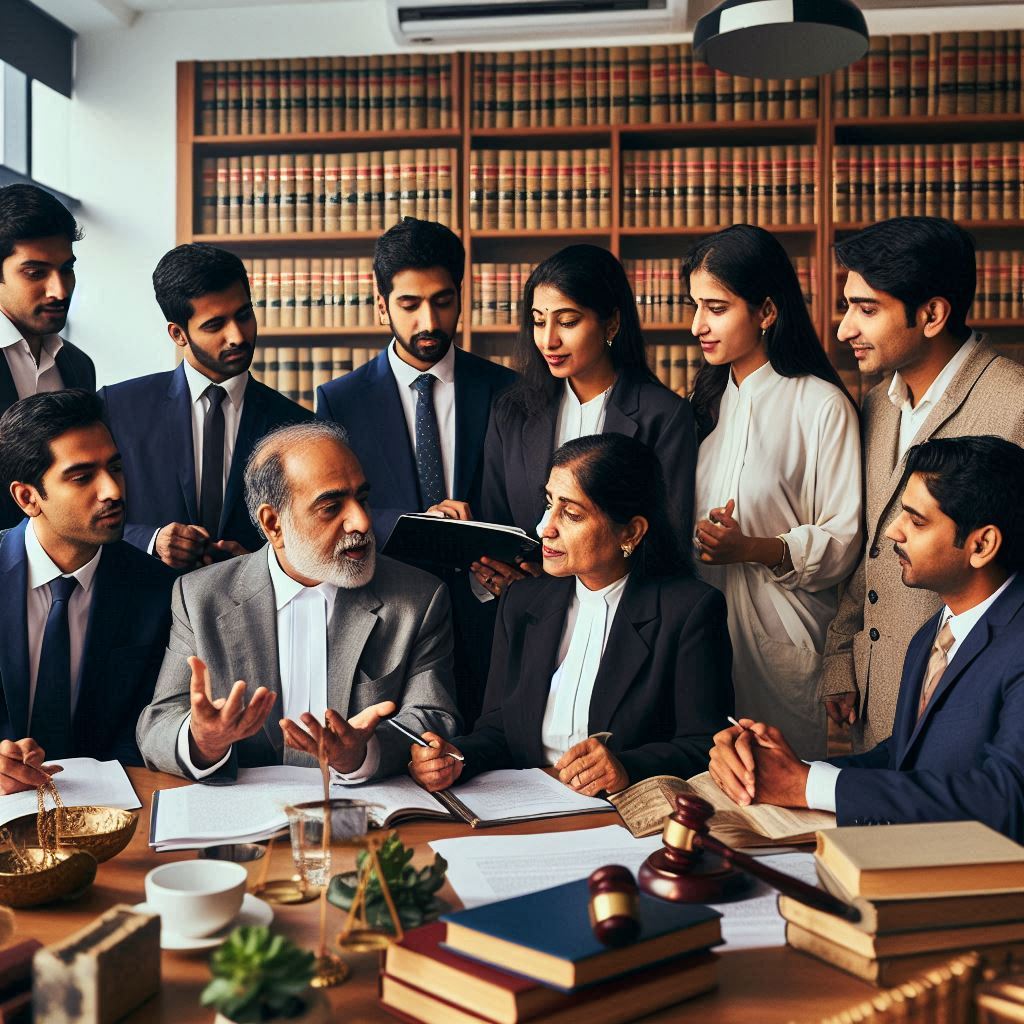Human rights lawyers in India play a pivotal role in safeguarding the fundamental rights and freedoms guaranteed to individuals under the Constitution and various international conventions. They specialize in legal matters related to civil liberties, equality, and justice, ensuring that every citizen can access their constitutional rights without discrimination. Whether addressing issues of unlawful detention, police brutality, or workplace discrimination, human rights lawyers are essential in upholding the rule of law and protecting marginalized communities.
Understanding Human Rights in India
Human rights in India are derived from the Constitution of India, legislative enactments, judicial precedents, and international human rights treaties to which India is a party. These rights are essential for ensuring equality, dignity, and freedom for all citizens.
Constitution of India and Human Rights
The Indian Constitution is the cornerstone of human rights protection in the country. It provides a comprehensive framework through the following provisions:
Fundamental Rights (Part III of the Constitution)
Fundamental Rights are guaranteed to all citizens and are enforceable by the judiciary.
- Article 14: Right to Equality – Ensures equality before the law and equal protection of the laws.
- Article 19: Freedom of Speech and Expression – Includes the right to assemble, form associations, and move freely throughout India.
- Article 21: Right to Life and Personal Liberty – Extends to the right to live with dignity, privacy, and a healthy environment.
- Article 22: Protection against Arbitrary Arrest and Detention – Provides safeguards in cases of preventive detention.
Directive Principles of State Policy (Part IV of the Constitution)
Though non-justiciable, the Directive Principles are vital in shaping human rights policies. Key articles include:
- Article 39A: Equal Justice and Free Legal Aid
- Article 41: Right to Work, Education, and Public Assistance
- Article 43: Living Wage and Decent Standard of Life for Workers
Legislative Framework for Human Rights Protection
Several laws supplement constitutional guarantees, ensuring human rights protection. Prominent among them are:
- The Protection of Human Rights Act, 1993: Establishes the National Human Rights Commission (NHRC) and State Human Rights Commissions (SHRCs).
- The Scheduled Castes and Scheduled Tribes (Prevention of Atrocities) Act, 1989: Prevents discrimination and violence against Dalits and Adivasis.
- The Juvenile Justice (Care and Protection of Children) Act, 2015: Safeguards the rights of children in conflict with the law or in need of care and protection.
- The Domestic Violence Act, 2005: Protects women from domestic abuse.
- The Right to Information Act, 2005: Ensures transparency and accountability in governance.
Role of Human Rights Lawyers in India
Human rights lawyers are instrumental in addressing violations and ensuring accountability. Their responsibilities encompass:
Advocating for Marginalized Groups
Human rights lawyers often represent vulnerable populations, including:
- Women and children
- Scheduled Castes and Scheduled Tribes
- LGBTQIA+ individuals
- Migrant workers and refugees
Litigating Constitutional Violations
Human rights lawyers frequently file writ petitions under:
- Article 32: Direct access to the Supreme Court for enforcement of Fundamental Rights.
- Article 226: Writ petitions in High Courts.
Working with Human Rights Commissions
Human rights lawyers assist in filing complaints with bodies like:
- National Human Rights Commission (NHRC)
- State Human Rights Commissions (SHRCs)
- National Commission for Women (NCW)
Key Challenges Faced by Human Rights Lawyers in India
Despite their crucial role, human rights lawyers encounter numerous challenges, including:
Judicial Delays
India’s overburdened judiciary often results in prolonged legal battles, causing delays in justice delivery.
Threats and Intimidation
Human rights lawyers frequently face harassment and threats, particularly in sensitive cases involving powerful individuals or entities.
Lack of Awareness
Limited awareness of human rights laws among the general public can hinder effective legal redress.
International Human Rights Framework and India
India is a signatory to several international human rights conventions, reinforcing its commitment to global human rights standards. These include:
- Universal Declaration of Human Rights (UDHR), 1948: A foundational document outlining basic human rights principles.
- International Covenant on Civil and Political Rights (ICCPR), 1966: Focuses on individual freedoms and rights.
- International Covenant on Economic, Social and Cultural Rights (ICESCR), 1966: Protects economic and cultural rights.
Human rights lawyers in India are indispensable in ensuring justice and equality for all citizens. Their work bridges the gap between constitutional ideals and real-world challenges, fostering a society that respects and protects the rights of every individual. By understanding the laws, challenges, and remedies related to human rights, both students and clients can better navigate this critical aspect of India’s legal landscape.
FAQs on Human Rights Lawyers in India
- What are the primary duties of a human rights lawyer in India?
Human rights lawyers advocate for individuals whose rights have been violated, represent marginalized groups, and litigate cases involving constitutional violations. - How can someone approach a human rights lawyer in India?
Individuals can contact legal aid organizations, bar associations, or human rights commissions for referrals to experienced lawyers. - What legal remedies are available for human rights violations in India?
Victims can file writ petitions under Articles 32 or 226, approach human rights commissions, or seek legal redress under specific laws like the Protection of Human Rights Act, 1993. - What international treaties support human rights in India?
India is a party to the UDHR, ICCPR, ICESCR, and other conventions that reinforce human rights protections. - What challenges do human rights lawyers face in India?
Key challenges include judicial delays, threats, lack of awareness, and limited resources for pro bono work.









